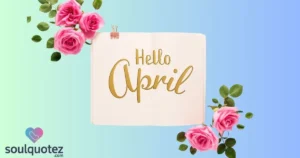“Master clever and hilarious responses that leave everyone smiling!”
Homework is a staple of student life, and so are the questions that come with it.IF it’s a curious teacher, a nosy peer, or a concerned parent, the moment someone asks about your homework, the pressure is on. Instead of fumbling for an answer, why not have some witty, clever comebacks ready?
Grabbing attention is key when responding to homework inquiries, especially if you want to inject some humor or charm into the conversation. With the right words, you can make light of the situation without offending or creating unnecessary tension.
This post will explore the funniest and most clever responses you can use when asked about homework. From snarky remarks to cheeky humor, these comebacks are designed to entertain while keeping things light and fun. Let’s dive in!
Funny Excuses About Forgetting Homework
- “I trained my goldfish to fetch, and it’s swimming home with it right now.”
- “It was so good, I’m submitting it to the Nobel Prize committee instead.”
- “I accidentally turned it into a paper airplane, and it’s probably over the Pacific by now.”
- “I left it on the bus, but the bus driver said they’d grade it for me.”
- “My invisible dog ate it, and now he’s grounded.”
- “It got mixed up with my fan mail—celebrity problems!”
- “I used it as a coaster, and now it’s a coffee masterpiece.”
- “It became self-aware and refused to be submitted.”
- “I put it in a safe place, so safe that even I can’t find it.”
- “It was so good, I framed it and forgot to make a copy.”
- “My cat is using it as a diary. I couldn’t disturb her.”
- “The wind had other plans for it.”
- “Aliens abducted it for research.”
- “It’s now part of a science experiment.”
- “The ghost in my attic needed it for his unfinished degree.”
- “I spilled my secret potion on it, and it disappeared.”
- “I turned it into origami and now it’s a crane.”
- “It spontaneously combusted—must’ve been too brilliant!”
- “I sent it by owl, but it’s still in training.”
- “It was borrowed for a Netflix documentary.”
Snarky, Sassy Responses
- “Why? Do you need help with it too?”
- “Oh, I did it—I just didn’t bring it.”
- “Of course, I did it. But it’s classified.”
- “Who needs homework when you’ve got charisma?”
- “It’s in the mail. Should arrive any day now.”
- “Oh, I’m saving that for the sequel.”
- “Why ruin the suspense by submitting it early?”
- “If I told you, I’d have to grade it myself.”
- “Homework? Never heard of her.”
- “I’m on a strict no-homework diet.”
- “Wouldn’t you like to know?”
- “I left it where all great ideas go—into the void.”
- “Homework is so last season.”
- “I’m just too advanced for this assignment.”
- “If I explain, I’ll spoil the mystery.”
- “I’m more of a verbal assignment person.”
- “Oh, I’m saving it for the group project.”
- “Ask me again after coffee.”

- “Homework? What’s that?”
- “It’s a long story involving ninjas.”
Totally Honest Answers
- “I forgot, plain and simple.”
- “I didn’t understand the assignment.”
- “I ran out of time with other priorities.”
- “I started it but didn’t finish.”
- “I honestly didn’t feel motivated.”
- “I underestimated how long it would take.”
- “I didn’t manage my time well.”
- “I had too many other tasks on my plate.”
- “I couldn’t focus yesterday.”
- “I forgot to bring it today.”
- “I’m still working on improving my study habits.”
- “I’ll admit—I was procrastinating.”
- “I didn’t realize how important it was.”
- “It wasn’t my best day.”
- “I’ll own it—this one’s on me.”
- “I misunderstood what was required.”
- “I overestimated my multitasking skills.”
- “I simply forgot to complete it.”
- “I didn’t prioritize it well.”
- “I’m taking steps to do better next time.”
Cheeky Punchlines
- “I told my plants a joke – now they’re rooting for me!”
- “I used to play piano by ear, but now I use my hands.”
- “Why don’t skeletons fight? They don’t have the guts!”
- “I’m on a seafood diet. I see food, and I eat it.”
- “I don’t trust stairs. They’re always up to something.”
- “I quit my job at the calendar factory – too many days were numbered.”
- “I told my computer a joke, but it didn’t get the bytes.”
- “I tried to organize a hide-and-seek competition, but it was a total flop. Good players are hard to find!”
- “Why don’t eggs tell jokes? They crack each other up.”
- “My job at the orange juice factory didn’t last – I couldn’t concentrate.”
- “I told my dog to fetch a stick, but he brought back a pun. He’s pawsitively hilarious.”
- “The bakery called me ungrateful, but I said, ‘That’s the yeast of my worries.’”
- “I opened a bakery, but business is crumby.”
- “I’m reading a book on anti-gravity – it’s impossible to put down!”
- “I wanted to be a math teacher, but I couldn’t deal with the division.”
- “Why don’t vampires have many friends? Because they’re a pain in the neck.”
- “I was going to tell you a construction joke, but I’m still working on it.”
- “I tried to catch fog yesterday – mist opportunity.”
- “I couldn’t figure out why the baseball kept getting bigger. Then it hit me.”
- “I was addicted to the hokey pokey, but I turned myself around.”
Using Humor to Deflect
- Situation: Someone criticizes your messy desk.
Response: “It’s not a mess; it’s organized chaos. Only I know where everything isn’t!” - Situation: You forget someone’s name.
Response: “I’m terrible with names, but I never forget a great face like yours!” - Situation: Someone teases you for being late.
Response: “I’m not late; I’m just operating on my own time zone.” - Situation: You spill a drink at a party.
Response: “Just testing the floor’s absorbency. It passed!” - Situation: You trip in public.
Response: “The floor was jealous of my shoes and wanted a closer look.” - Situation: Someone points out a typo in your work.
Response: “That’s not a typo—it’s a test to see if you’re paying attention!” - Situation: Your outfit gets called out as unusual.
Response: “Thanks! I’m auditioning for the role of bold fashion icon.“ - Situation: Someone jokes about your cooking skills.
Response: “I don’t cook bad meals; I create unique culinary experiences.” - Situation: You send a text to the wrong person.
Response: “Oops! My phone is just networking without my permission.” - Situation: Someone notices you’re nervous during a speech.
Response: “It’s not nerves; it’s just my body’s way of dancing on the inside.” - Situation: A friend teases your taste in music.
Response: “I don’t listen to bad music; I broaden horizons!” - Situation: You break something accidentally.
Response: “Well, they say you can’t make an omelet without breaking a few glasses.” - Situation: Someone jokes about your bad handwriting.
Response: “I’m not writing—it’s abstract art in ink!” - Situation: You’re caught singing off-key.
Response: “I’m not out of tune; I’m just jazz improvising.” - Situation: Someone comments on your love for coffee.
Response: “It’s not coffee addiction—it’s bean dedication.” - Situation: You’re caught staring blankly during a meeting.
Response: “Oh, sorry, I was having an intellectual debate with my imagination.” - Situation: A colleague mocks your slow typing.
Response: “I type slow because each word is a masterpiece in progress.”

- Situation: Someone jokes about your forgetfulness.
Response: “I don’t forget things; I just prioritize creative memory gaps.” - Situation: A friend comments on your love for desserts.
Response: “I’m not indulging; I’m supporting the sugar economy.” - Situation: Someone asks why you’re always making jokes.
Response: “Humor is my cardio—it keeps my heart and spirit in shape!”
When Is It Okay to Joke About Not Doing Homework?
Consider the Asker’s Position
Before making a joke, think about who is asking. Is it your teacher, a classmate, or a parent? Keep it lighthearted and avoid offending anyone.
- Understand Their Perspective
Before responding, think about why the person is asking the question. Are they curious, confused, or concerned? For example, if a colleague asks why a task is delayed, they might be under pressure themselves. Frame your answer with empathy, like: “I understand this is time-sensitive. Here’s where we are, and I’m working to ensure it’s completed soon.” - Gauge Their Level of Knowledge
Tailor your response to their understanding. If a beginner asks about a technical topic, avoid jargon. For example: “It’s like this: the system works as a series of steps, each depending on the previous one.” A thoughtful answer shows respect for their knowledge level and avoids making them feel intimidated. - Consider Their Intentions
Are they genuinely curious, or do they have an ulterior motive? If the asker seems skeptical, a calm and factual response can help. For instance: “I see why you might have concerns about this decision. Let me share the reasoning behind it.” - Acknowledge Emotional Undertones
Some questions carry emotional weight. If a friend asks, “Do you think I’m making a mistake?” they might be seeking reassurance. Respond with care: “I think you’ve thought this through, but let’s explore it together to make sure you’re comfortable.” - Adapt Based on Context
Context matters. A casual question in a relaxed setting doesn’t need a formal response, while a professional query deserves precision. For example, when asked in a meeting, “What’s the status of your project?” you could say: “It’s on track, and I’ll provide a detailed update shortly.”
Gauge the Mood of the Interaction
Sometimes, humor fits perfectly, but other times, sincerity is the better choice. Test the waters before diving in with your funniest remark.
- Observe Body Language
Look for visual cues like facial expressions, posture, or gestures. A smile and open posture suggest a relaxed mood, while crossed arms or a furrowed brow may indicate tension or discomfort. Adjust your tone and approach accordingly: “You seem a bit concerned—can I help clarify anything?” - Listen to Their Tone
Pay attention to the way someone speaks. A lighthearted, joking tone suggests they’re in a good mood, while a curt or hesitant tone may signal frustration or stress. If they sound tense, respond with empathy: “I can sense this is important to you. Let’s work through it together.” - Assess the Setting
The environment can set the tone. A casual conversation at a coffee shop usually has a different mood than a formal meeting. Match your energy to the setting. For example, in a laid-back setting, you might say: “This is just brainstorming—throw out any ideas, no pressure.” - Watch for Emotional Cues
Are they laughing, sighing, or avoiding eye contact? These behaviors can reveal the mood of the interaction. If they seem anxious, you could say: “It’s okay—take your time. I’m here to help.” Acknowledging emotions shows understanding and builds trust. - Test the Waters with Humor
A light, appropriate joke can help gauge the mood. If the other person laughs or smiles, they’re likely receptive and relaxed. If they remain serious, shift to a more formal tone: “I see this is a serious matter. Let’s focus on finding a solution.”
Consider How Often You Use Humor/Excuses
If joking is a rare event for you, it might come across as charming. But if it’s a habit, people might take you less seriously.
- Reflect on Patterns in Conversations
Think about how often you rely on humor or excuses in daily interactions. If humor becomes your default way to deflect responsibility or lighten tension, it might hinder deeper connections. For example, instead of joking about missing a deadline, say: “I should have communicated earlier, and I’ll do better next time.” - Balance Humor with Accountability
While humor can ease awkward moments, overusing it might make you seem insincere. If you use humor to avoid addressing issues, people may feel you’re dodging responsibility. For instance, instead of saying, “Guess I’m allergic to being on time!” try: “I apologize for being late—I’ll adjust my schedule to prevent this.” - Assess the Impact on Others
Consider how your humor or excuses affect those around you. Do they laugh with you, or do they seem frustrated? For example, if a coworker is annoyed by repeated excuses, they might need reassurance rather than jokes. Saying, “I understand this delay affects your work; let’s discuss how I can help,” builds trust. - Use Humor as a Tool, Not a Crutch
Humor can be an excellent icebreaker, but relying on it excessively might prevent serious conversations. Reflect on whether you’re avoiding difficult topics. For example, instead of joking about a conflict, address it directly: “I value our collaboration, so I want to clear the air about this.” - Be Honest About Excuses
If you frequently make excuses, ask yourself why. Is it to avoid confrontation, or do you genuinely lack the resources to meet expectations? A sincere response like, “I didn’t manage my time well, but I’m working on improving,” shows accountability and a willingness to grow.
Clever Homework Humor You Haven’t Heard Before
Exaggerations and Hyperbole
“I worked so hard on it that it vanished into thin air!”
Examples of Exaggerations and Hyperbole About Homework
- “This homework will take me a thousand years to finish!”
An exaggerated way to convey how overwhelming the assignment feels. - “My math textbook weighs more than a baby elephant!”
A humorous hyperbole to emphasize the size of school materials. - “I had so much homework last night, I barely survived!”
A dramatic exaggeration to express how draining the workload was. - “This essay is so long, it’s basically the next great American novel.”
A playful way to describe an essay that feels never-ending. - “If homework were a sport, I’d be an Olympic gold medalist by now.”
An amusing exaggeration to highlight the sheer amount of practice with assignments.
Unexpected ‘Facts’
“Did you know 9 out of 10 homework assignments spontaneously disappear overnight?”
- The word ‘homework’ first appeared in the 16th century.”
Homework as a term has been around for centuries, but the dread might be timeless! - “In Finland, students have very little homework yet achieve top global rankings.”
A surprising contrast to the homework-heavy approaches in other countries. - “The world’s largest homework assignment involved over 200,000 students working on the same task in India.”
A jaw-dropping scale for a single assignment! - “Homework was briefly banned in California in the early 1900s for being harmful to children’s health.”
A historical tidbit that sparks debate about the impact of homework. - “Studies show that too much homework can lead to stress and sleep deprivation in students.”
An unexpected fact that supports arguments for lighter workloads.
Candy Theme
Life’s sweetest moments are like candy – colorful, diverse, and packed with joy. Whether it’s a bag of jelly beans or a bar of creamy chocolate, candy brings people together, reminding us of childhood innocence and carefree laughter. Imagine each day as a different flavor, offering a unique treat to savor.
In the candy-themed world, challenges are just sour gummies waiting to turn sweet. Sweeten your approach by adding a sprinkle of positivity, like powdered sugar on a fresh donut. Life might hand you licorice, but with the right attitude, even that can taste delightful!
Puns
Life without puns would be un-bear-able, like gummy bears without the chew. From “doughnut stop believing” to “lettuce turnip the beet,” puns add flavor to conversations, making everyday interactions more palatable and memorable.
So why not taco ‘bout puns more often? They’re nacho ordinary jokes – they brie-ng joy and laughter while reminding us not to take life too seriously. After all, laughter is the zest in the recipe of life.
Over-the-Top Methods
When subtlety fails, go big or go home! Why send a simple text apology when you can hire a skywriter? Over-the-top methods may seem excessive, but they make sure your message lands and sticks in people’s minds like glitter after a party.
For maximum impact, think flash mobs, singing telegrams, or even custom billboards. Sure, it’s extra, but sometimes going overboard is the best way to get people to say, “Okay, you’ve made your point!”
IT Troubleshooting
“Have you tried turning it off and on again?” It’s the mantra of IT troubleshooting, often solving problems faster than you can say “system error.” Technology may be smart, but sometimes, it just needs a fresh start, much like humans do.
When that doesn’t work, IT pros become detectives, tracing glitches with the precision of Sherlock Holmes. Whether it’s a network hiccup or a rogue software update, patience and persistence are their ultimate tools.
Homework Horror Movie
The clock strikes midnight, and a shadow looms over the desk – it’s the unfinished homework, haunting your every move. Panic sets in as the pages multiply, like zombies in a classic horror movie. Will you escape unscathed, or will procrastination claim another victim?
Just when it seems all is lost, the hero (you) must rise, armed with coffee and determination. The final act? A race against time, typing furiously to submit the assignment before dawn breaks.
When in Doubt, Apologize Sincerely
There’s nothing wrong with admitting you were wrong – a heartfelt apology can mend bridges faster than excuses can burn them. A simple “I’m sorry” goes a long way in showing you care and value the relationship over your ego.
Sincerity is key. Avoid “if” apologies like “I’m sorry if you were upset.” Own your actions with honesty and empathy, and watch as misunderstandings fade like morning mist.
Conclusion
Having witty and clever comebacks for homework questions can add a touch of humor to otherwise stressful situations. Whether you’re aiming for a laugh or trying to ease the tension, these responses can keep the mood light. Just remember, balance is key—use humor sparingly and responsibly.
Key Insight
- What are the best funny excuses for not doing homework? Clever lines like “My goldfish is swimming it home” always entertain.
- When should I avoid joking about homework? If the asker is serious or frustrated, opt for honesty instead.
- How do I balance humor and sincerity in my responses? Use humor only when it fits the situation, and don’t overuse it.
- What’s a professional way to explain missing homework? Admit your mistake and express a plan to do better.
- Why is humor important in homework situations? It can lighten the mood and ease tension, making interactions more pleasant.

Hi! I’m Ethan Matthews, a passionate author of soulquotez.com who loves crafting heartfelt wishes and messages to make every occasion special.












